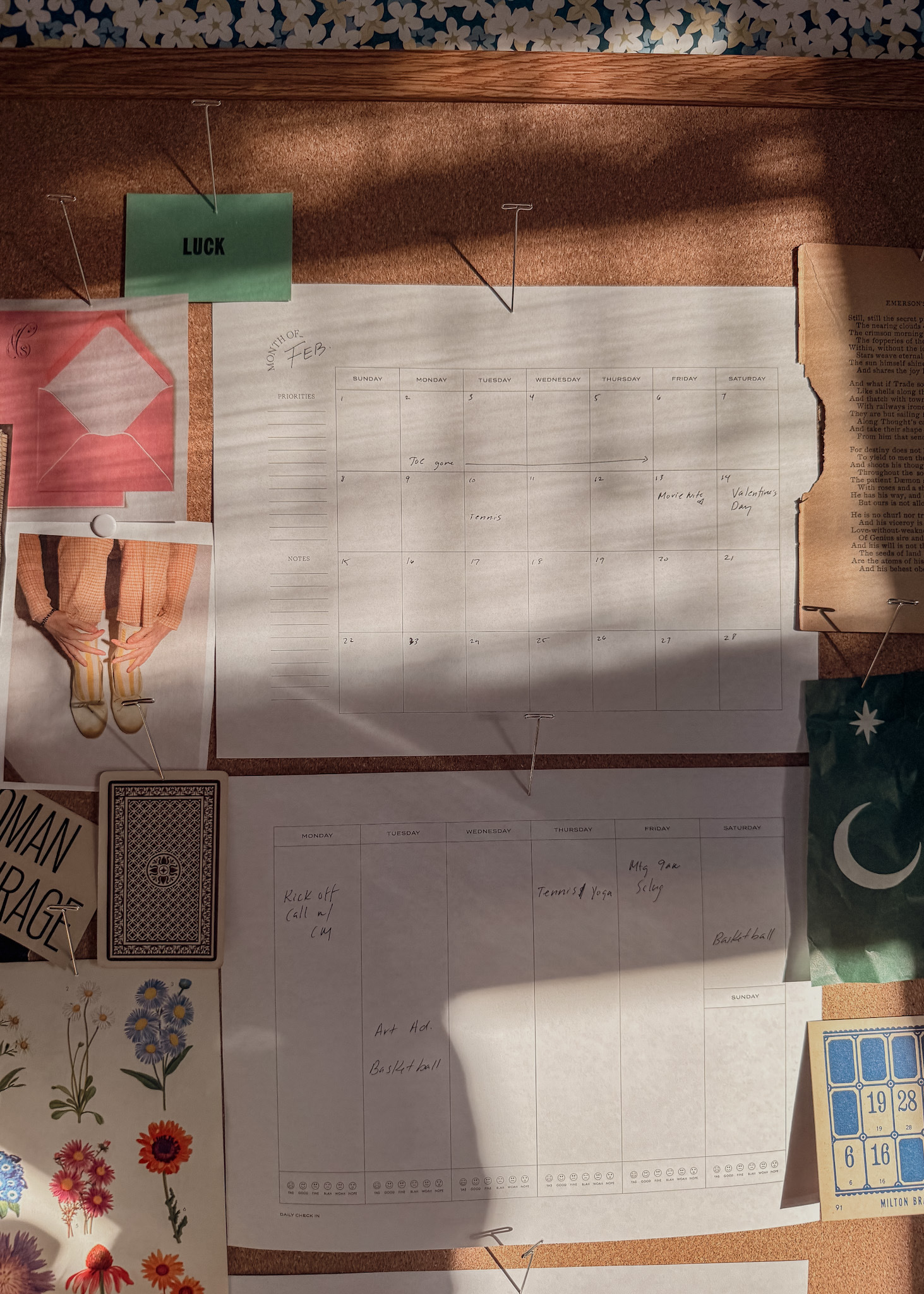

Every so often, we encounter a new thing in ourselves: a reaction, feeling, or skill that we didn’t know we possessed. Motherhood has brought an overwhelming number of these new things to my attention. For instance, I have now experienced that “mama bear” ferocity that people talk about. It may have been brought on by a sick baby+empty lobby+extended wait, or perhaps a new town+no friends+summoning courage/energy to attend a function+awkward conversations/pauses+fear of never finding a community. Or it was someone budging in the grocery line. Whatever it was, I remember the wash of indignation coupled with the urgent spark of motivation that I felt. I had previously thought myself an easy breezy, go-with-the-flow type, so this surge of protective ambition was new, but actually not very surprising. I had a job to do, and good reasons to get it done. It felt instinctual, adaptive, even necessary at some level.
A quotation from artist Sarah Walker in this piece describes the same maternal phenomenon: “Becoming a mother is like discovering the existence of a strange new room in the house where you already live.”
Even when this discovery is natural, it ain’t easy. There’s often a bootcamp-vibe to the early weeks and months after a baby is born, where adults live in big changes on little sleep. You’ve chosen to be here, but you can’t control the conditions. It’s a time of high demand but low energy, guts and occasional glory, fueled by caffeine and an innate drive to protect and provide.
The term can be confusing, so here’s some clarification: A mother is clinically considered to be “postpartum” for roughly six months following delivery. In the first 6–12 hours after delivery, new mamas are monitored closely for potential medical crises. The next 2-6 weeks make up the second stage of the postpartum period, an (exciting?) time for (more) emotional, physical metabolic, cardiovascular, and hormonal changes. The last phase ends six months post-delivery: changes gradually slow, and mother’s body typically returns to pre-pregnant functioning.
The things that help new mothers are things that help us all: empathy and emotional awareness, self-care, mindful movement, intentional nutrition, concern for the preservation of the family. Delicate times and vulnerable people often carry the banner and remind us to slow our pace, strip away the excess, and focus on the essentials.
So what can we do to hang on to sanity and self-worth in the midst of this dizzying miracle? Here is a list of ideas to consider besides joining the rush back to pre-baby jobs, jean sizes, or schedules. It’s not comprehensive, it may not be new or universal, but it is intended to begin (or continue) a conversation beyond clinical pamphlets:
• Be aware of the impact of other people’s recommendations. (Ha.) When faced with another well-meaning (or just self-important) advice giver, picture yourself receiving their words and holding them in your hand. Examine the messages before rushing to implement or reject them. Think about what you’re doing and why so you’re not stuck with too many tips and residual feelings of ick. (I liked this article for that reminder.)
• Write things down. How does a sleep-deprived new mother with depleted iron levels, wildly fluctuating hormones, and divided attentions remember anything? She texts herself, uses an app, sets an alarm, or writes on a notepad. Your brain will recover to normal size after the grey matter decrease that comes with pregnancy. In the meantime, do what helps. Make a note.
• Simplify other parts of life so you actually have less to remember. Prioritize the basics: nourishment and hydration, fresh air, movement, rest.
• Set boundaries. We give ourselves to people and relationships, careers, household upkeep, social media, visitors, travel. We take in food, spend money, let tears out and advice in. Boundaries offer freedom to receive what is helpful and reject what is not. Incidentally, reading about the effects of pregnancy and parenting on the brain leads me to believe that “mom brain” may be your system setting natural boundaries. A narrowed focus on healing and providing comes at a cost (for instance, since having a baby, I have the hardest time remembering birthdays and the word “billboard”) but the reward is heightened attentiveness to what is most important.
• Identify toxic relationships. Break up with them. Distance yourself from the toxins. Life is already too short. Time and energy are being shared with a new little life, who can be both directly and indirectly affected by toxic people.
• Lower your tolerance for BS (the edited and clinical term for thoughts, expectations, feelings, and actions that are unhelpful, untrue, unkind, or unnecessary). In some situations (i.e. “Minnesota Nice”), we tend to justify, excuse, or ignore. It is acceptable and wise to shift our priority from making others comfortable in their ridiculousness to protecting and attending to our families.
• Schedule, stick to, and enjoy time to yourself. Use that time to cry, or laugh, or be at peace. Because you can’t give what you don’t have.
• Enjoy small indulgences. Tight budgets and busy days still allow for little bits of beauty to remind us that there is much to be savored, and this bizarre phase, like all feelings, will not last forever. Even routines (like regular showers) may feel like extravagance at times. Indulge.
• Date your partner: This is the team that started it all, will hold it all together, or will pick up the pieces when it all falls apart. Maybe it’s a babysitter and a dinner reservation, maybe it’s a picnic on the living room floor between baby wakings, but be intentional about taking time to remember your other half and his needs, to enjoy each other, and to “meet each other again” in this whole new world.
• Ask for help. Utilize the gifts of those in your tribe. Honor people by asking them to use their skills, and then be grateful.
• Say it. When something is good or beautiful, say it. When something’s not right, say it. Advocate for yourself as well as your newborn. Postpartum scales to measure depression and anxiety are often insufficient, and no one knows your body like you do. Tell your partner, your M.D., a counselor, your mother, etc. what you are feeling and what you need.
• Share! Tell me what beautiful (and strange) things you have done, seen or hope for in the postpartum period.
BY Tala Ciatti - December 27, 2016
Most-read posts:
Did you know W&D now has a resource library of Printable Art, Templates, Freebies, and more?
take me there
Get Our Best W&D Resources
for designing a life well-lived




Thank you for being here. For being open to enjoying life’s simple pleasures and looking inward to understand yourself, your neighbors, and your fellow humans! I’m looking forward to chatting with you.
Hi, I'm Kate. Welcome to my happy place.


















I’m nowhere close to having a baby, but this really helps open my eyes to the thoughts and feelings my friends who have had kids are experiencing!
Charmaine Ng | Architecture & Lifestyle Blog
http://charmainenyw.com
Loved every minute of this! Although I needed this 7 months ago all my friends are having babies so I will pass this on to help. This biggest lesson for me was ‘say it’. we need to make the statistics more accurate and perhaps change the title ‘postpartum depression’ to just ‘postpartum’ because it’s not just depression – it’s a lot more then that and it’s different for everyone. Thanks for talking about it!
Well said. Chelsey <3
I love the item about recommendations. I would include parenting books in that, especially sleep books. While I found some good information in books, a lot of it is so contradictory! And I came across advice that didn’t sit well with me but what did I know? It about did my head in when I was sleep-deprived, getting used to the new responsibilities of caring for a child, and trying so hard to do everything right. Give yourself permission to disagree with advice you’re given! And know that you aren’t going to do everything right.
Such great advice, Lyndsee. I found myself clinging to certain pieces of advice I’d read like it was the gospel…sometimes you miss solutions when you don’t question popular advice!
Nice….
Oh, Kate. You are so brave and generous in sharing with us your personal story in order that, one day, it won’t seem “brave” to talk about depression, pre- or post-partum.
I was depressed during my second pregnancy because my MD didn’t want me taking them. Then went into a “I don’t love my baby” post partum period. I stopped breastfeeding after a few months and got back on my meds. That and giving myself permission to rest got me through, but I so wish I’d done many of the things suggested in the excellent article in your post.
Hi Gretchen! I’m so happy it helped. I also stopped breastfeeding recently to start taking the medication I needed. These decisions are hard but I’m glad more of us are realizing that a healthy mother is as much a factor in a child’s development as what we feed them. Hugs to you!
Oops! I need more coffee!
“…because my MD didn’t want me taking ANTIDEPRESSANTS.”
I love these motherhood posts! I’m a local Minneapolis mama who is also a mental health therapist. Thanks for opening up and sharing about your life! You’re eliminating the stigma around mental health and it is awesome! And these motherhood posts are so raw and honest and beautiful! Thanks for all you do!
Kate, have you had any negatives effects, particularly on your brand/design business, from being so (wonderfully) open about your mental health diagnoses? IOW, has a client or potential client ever expressed reluctance to hire you because of it?
Hi Gretchen, Thanks for your comment. While there is no way of knowing if someone hasn’t reached out due to disclosing my ADHD and anxiety, I haven’t lost a client due to my transparency. I’ve been consulting and designing quite a bit since 2013. I think it helps being in the “creative” industry… in some ways it’s an asset, with a very obvious down side. 😉 Hope this helps answer your question! Thanks for your support and kind words.
I love this article! I am 2.5 months post baby and I feel all these things. I didn’t realize how much one changes after giving birth. I slowdown, told my job I am not going back due to back energy at the work place. I go out in public less because I have become so sensitive to others behavior. I do read alot about postpartm, baby and I do yoga along with daily mom and bay walks. I agree that this is the time to listen to yourself and set boudaries!!!
Melissa, congrats on the new baby! I hope you’re continuing to find both support and growth in this new life post-baby!
I just read this article; what stood out most is the note to write things down. This is so true! And it’s not just writing down the good stuff. I had to write down my daughter’s sleep habits and patterns. It seemed, to my sleep-deprived mind, so bleak and awful. When I wrote it down, the actual time it took to get her to sleep and how long she slept, I saw patterns emerge, and the picture wasn’t so overwhelming. I do this now, whenever I need some mental clarity. Such a great piece of advice. Amy
Yes! It’s like journaling my own thoughts…the discipline it takes to put pen to paper is worth it in the end! Thanks, Amy!